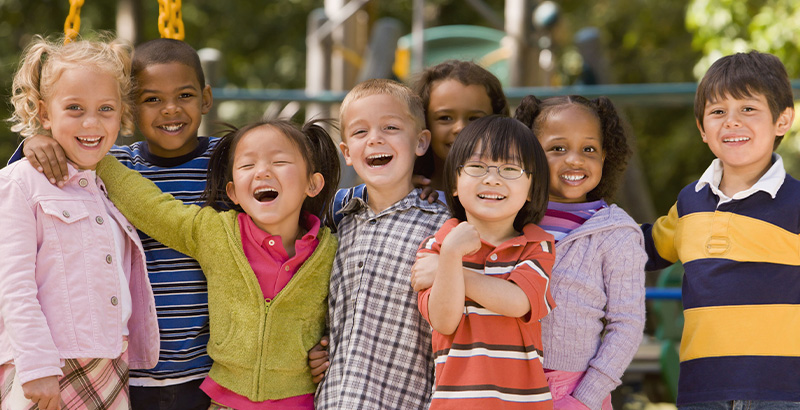
This year on August 4 it is Friendship Day, where we recognize the importance of celebrating and encouraging friendships in early childhood as the benefits of strong friendships can last a lifetime. Friendships that have a positive influence in our children’s lives help children with their social and emotional development. “Social-emotional development includes the child’s experience, expression, and management of emotions and the ability to establish positive and rewarding relationships with others” (Source). Social competence, self-esteem, and self-confidence have also been positively linked to friendships. This is why one of the most important benefits of friendships in early childhood is the development of social skills.
Our little ones might have some trouble making friends but there are ways you can help them develop friendships:
- Be a positive role model when you are around your friends, and when you speak of your own friendships
- Teach them the importance of sharing and taking turns – when children learn know how to share, they play better with others
- Encourage good friendship skills by encouraging them and showing them how to identify and express their feelings
- For example, teach them to tell others “It makes me happy/sad/confused/… when you do …” this will help them in their interactions with not only other children but with adults
- Encourage your child to interact with children who have similar interests, but also try to encourage them to try new activities in order to connect with others
- Encourage a positive dynamic between siblings, cousins, and other children they may see often
- Talk with other parents/caregivers about how they encourage friendships and try to schedule play dates with other children in day care, head start, pre-school and kinder
Our school systems, communities and workplaces are increasingly diverse and children who build friendships with people of different ethnic, religious and racial backgrounds learn about the inaccuracy of stereotypes, the inequity of race-based exclusion and the importance of inclusive racial attitudes. They are also less likely to be prejudice and are likely to have more positive intergroup attitudes, greater social skills, self-esteem and even improved academic performance (Source).
The benefits of friendships are endless, having someone who you can always count on makes a difference in a child’s mental and physical wellbeing. Encourage positive friendships in your children’s lives as it will benefit their development and well-being.
References
Children and the benefits of friendship
The importance of childhood friendships, and how to nurture them